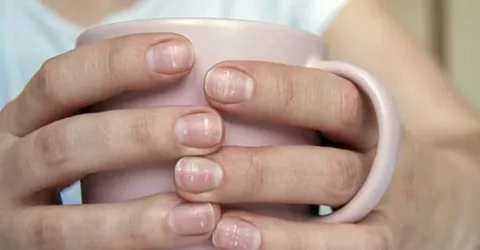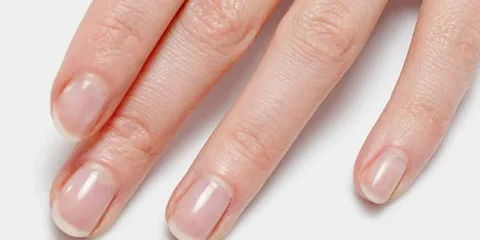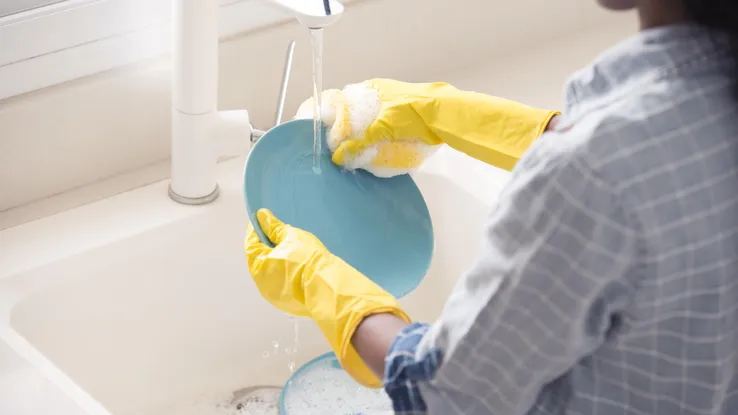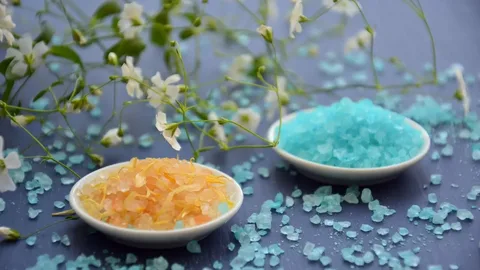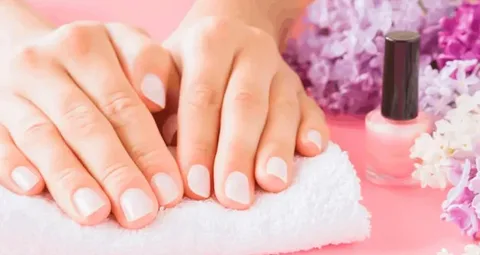Soft, bendy nails can be a source of frustration for many people. If you find yourself constantly battling breakage, peeling, or simply wishing for stronger, healthier nails, you’re not alone.
Fortunately, understanding the causes of this issue and implementing effective strategies can lead to significant improvements. In this comprehensive guide, we’ll explore the reasons behind soft nails and provide actionable tips to strengthen them.
Understanding the Causes of Soft, Bendy Nails
Before diving into solutions, it’s essential to understand why your nails might be soft and bendy. Several factors can contribute to this condition.
Nutritional Deficiencies
One of the primary reasons for weak nails is a lack of key nutrients. Your diet plays a crucial role in nail health. Here are some vital nutrients that can affect your nails:
- Biotin: This B vitamin is essential for nail growth and strength. Studies have shown that biotin supplementation can improve nail thickness and reduce brittleness.
- Protein: Nails are primarily made of a protein called keratin. A diet low in protein can lead to weaker nails.
- Zinc: This mineral is important for cell division and growth, which includes nail cells. A deficiency in zinc can lead to white spots on the nails and other issues.
- Iron: Iron helps carry oxygen to your cells, including those that make up your nails. Low iron levels can lead to brittle nails.
Environmental Factors
Your daily environment can significantly impact nail strength. Harsh chemicals found in cleaning products and nail polish removers can lead to damage over time. Frequent exposure to water such as during dishwashing or swimming can also weaken your nails.
Health Conditions
Certain medical conditions can affect nail strength as well. For example:
- Psoriasis: This skin condition can cause pitting and discoloration in the nails.
- Thyroid Disorders: Conditions like hypothyroidism can lead to dry, brittle nails.
- Fungal Infections: These can cause nails to become discolored and brittle.
If you suspect an underlying health issue, consulting a healthcare professional is advisable.
Practical Tips for Strengthening Nails
Now that we’ve covered the causes, let’s explore practical tips that can help strengthen your soft, bendy nails.
Maintain Short Nail Length
Keeping your nails short is one of the simplest ways to prevent breakage. Shorter nails are less prone to tearing because they have fewer exposed edges. When trimming your nails, round the edges gently with a nail file to prevent snags.
Proper Nail Filing Techniques
Filing your nails correctly is vital for maintaining their health:
- Use a soft nail file to avoid rough edges.
- File in one direction rather than using a back and forth motion to prevent splitting.
- Consider using a 4 way nail buffer for smoothness.
Choose Gentle Nail Products
Opt for gentle nail care products that won’t strip moisture from your nails:
- Avoid acetone based removers, which can dry out your nails.
- Look for polishes that are free from harmful chemicals like formaldehyde, toluene, and dibutyl phthalate (DBP).
Nutritional Strategies
Eating a balanced diet rich in nutrients can significantly improve nail strength:
- Incorporate biotin rich foods such as eggs, nuts, seeds, and leafy greens.
- Ensure adequate protein intake through sources like fish, poultry, legumes, and dairy products.
- Don’t forget about hydration; drinking enough water is essential for overall health.
Consider Supplements
If dietary changes aren’t enough, consider taking supplements:
- Biotin supplements are widely recommended for strengthening nails. A typical dosage ranges from 2,500 to 5,000 micrograms per day.
- Other options include collagen supplements or multivitamins containing essential nutrients like zinc and iron.
Limit Water Exposure
Prolonged exposure to water can weaken your nails. Here are some tips:
- Wear cotton lined gloves while doing dishes or cleaning.
- Try to keep your nails dry during baths or showers when possible.
Avoid Acrylics and Harsh Treatments
If you frequently use acrylics or gel manicures, consider taking a break. These treatments can cause lasting damage even after you stop using them. Focus on nurturing your natural nails during this time.
Incorporate Nail Strengtheners
Using a nail strengthener can provide an extra layer of protection:
- Look for products that contain ingredients like keratin, calcium, or vitamin E.
- Prescription options like Nuvail and Genadur may offer more significant benefits if over the counter products don’t suffice.
Moisturize Regularly
Keeping your hands and nails moisturized is crucial:
- Use hand creams enriched with vitamins and oils.
- Apply cuticle oil daily to nourish the skin around your nails.
Consult a Dermatologist
If you’ve tried various methods without success, it may be time to consult a dermatologist. They can assess your situation and recommend treatments tailored to your needs.
Home Remedies for Stronger Nails
In addition to the tips mentioned above, several home remedies can help strengthen soft and bendy nails effectively.
Olive Oil Treatment
Olive oil is known for its moisturizing properties. When massaged into your nails, it adds instant hydration. Here’s how you can use it:
- Warm up a teaspoon of olive oil.
- Add a few drops of lemon juice for added benefits (the vitamin C in lemon juice helps with collagen production).
- Massage the mixture into your nails before bed.
- Cover with soft gloves overnight for maximum absorption.
Sea Salt Soak
Sea salt is known for strengthening brittle nails while softening cuticles. To create a soak:
- Mix two tablespoons of sea salt into a small bowl of warm water.
- Add two drops of frankincense oil (known for its anti inflammatory properties) and wheat germ oil (rich in vitamin E).
- Soak your nails for 10–15 minutes.
- Rinse with warm water and pat dry before applying hand cream.
Coconut Oil Massage
Coconut oil is another excellent option for adding moisture:
- Gently warm a few teaspoons of coconut oil.
- Massage it into your hands and nails daily to add instant moisture and nourishment.
Nail Care Practices Handle with Care!
Mastering proper nail care practices is essential for thin or weak nails:
- Avoid harsh chemicals in acetone based nail polish removers; opt for gentler alternatives instead.
- File your nails in the correct shape (rounded or square) to minimize the risk of snagging or breakage.
- Remember to wear protective gloves when handling cleaning products or performing household chores to shield your nails from harmful substances.
The Role of Hydration in Nail Health
Hydration is key when it comes to strong nails; dry nails easily become brittle, causing them to break and peel. Aim to drink the recommended daily amount of 2–2.5 liters of water to keep yours at their healthiest.
Incorporating natural oils like coconut, olive, or argan oil into your skincare routine will nourish and hydrate your nails effectively. Gently massage a small amount onto your nails and cuticles daily to restore moisture, enhance flexibility, and promote healthier nail growth.
DIY Nail Soaks for Strength!
Indulging in revitalizing DIY treatments once in a while can enhance strength and resilience:
- Prepare a nail soak by filling a bowl with warm water.
- Add a few drops of lemon juice or tea tree oil (known for its antifungal properties).
- Soak your nails for 10–15 minutes; allow the nourishing properties to penetrate deeply.
- For added protection, apply strengthening polishes enriched with ingredients like keratin or calcium as base or top coats.
The Importance of Gentle Care Routines
Adopting a gentle nail care routine is essential for thin or weak nails:
- Avoid using metal tools to push back cuticles; instead, use wooden or rubber cuticle pushers.
- Be gentle when filing; opt for fine grit files to prevent excessive thinning.
- Allow natural nails time away from polish or enhancements so they can breathe and recover from damage caused by these products.
Lifestyle Changes That Promote Nail Health
In addition to specific nail care practices, certain lifestyle changes can promote overall nail health:
Stress Management
High levels of stress can negatively impact various aspects of health, including nail growth. Incorporating stress management techniques such as yoga, meditation, or regular exercise into your routine can help improve overall well being and by extension nail health.
Avoiding Bad Habits
Certain habits can harm your nail health:
- Biting your nails not only damages them but also increases the risk of infection.
- Picking at hangnails can lead to painful tears and potential infections.
Being mindful of these habits will help maintain healthier nails over time.
The Importance of Regular Check Ups
Regular check ups with healthcare professionals are crucial if you notice significant changes in your nail health such as discoloration, unusual shapes, or other abnormalities these could signal underlying health issues that need attention.
Conclusion
Strengthening soft, bendy nails takes time and dedication but is entirely achievable with the right approach!
By understanding the causes behind weak nails and implementing these practical tips along with home remedies, you’ll be well on your way toward healthier and more resilient nails in no time!
Remember that consistency is key; make these practices part of your daily routine for optimal results!
Additional Resources
For further reading on nail health and care techniques, consider exploring reputable beauty blogs or consulting with professionals in dermatology or cosmetology.
FAQs
1.What causes soft nails?
Soft nails can result from nutritional deficiencies (like biotin), environmental factors (like harsh chemicals), or underlying health conditions (like thyroid disorders).
2.How can I strengthen my nails naturally?
Focus on a balanced diet rich in biotin and protein; use gentle nail products; keep your hands moisturized regularly; consider supplements if necessary.
3.Are there specific foods that promote strong nails?
Yes! Foods high in biotin (like eggs), protein (like fish), leafy greens (like spinach), nuts (like almonds), and seeds (like chia seeds) are excellent choices for promoting healthy nail growth.
4.Should I avoid acrylics completely?
If you struggle with weak or damaged natural nails already it’s best to limit or avoid acrylics as they may cause further damage over time; give yourself breaks between applications whenever possible!
5.How often should I apply cuticle oil?
Daily application of cuticle oil is recommended! This keeps skin around each nail hydrated while promoting overall health especially during winter months when dryness tends increases significantly!
By following these guidelines diligently and incorporating these practices into everyday life you’ll soon notice an improvement not only in strength but also appearance! Your journey towards beautiful healthy looking fingernails starts today!
